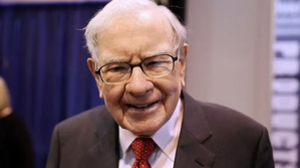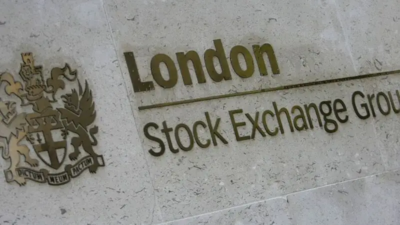Chinese stocks have lost $6 trillion in 3 years. Here’s what you need to know
Editor’s Note: Sign up for CNN’s Meanwhile in China newsletter, which explores what you need to know about the country’s rise and how it impacts the world.
Chinese shares haven’t just had a bad start to 2024. It’s been rough going since February 2021, when they hit their most recent peak.
Over the past three years, about $6 trillion — equivalent to roughly twice Britain’s annual economic output — has been wiped off the value of Chinese and Hong Kong stocks.
The Hang Seng index has crashed 10% so far this year alone, while the Shanghai Composite and Shenzhen Component indexes are down 7% and 10% respectively.
The astonishing losses, reminiscent of the last Chinese stock market crash of 2015-2016, highlight a crisis of confidence among investors concerned about the country’s future.
“The past three years were no doubt a challenging and frustrating period for investors and market participants in Chinese equities,” Goldman Sachs analysts wrote in a research note Tuesday. “China … [is] currently trading at suppressed valuations and decade-low allocations across [Investment] fund mandates.”
The world’s second largest economy is plagued by a myriad of problems. They include a record downturn in real estate, deflation, debt, a falling birthrate and shrinking work force, as well as a shift towards ideology-driven policies that has rattled the private sector and scared away foreign firms.
The stock meltdown has made Chinese markets the world’s worst performers so far this year. All this is playing out against the backdrop of a global stock market rally, led by Wall Street’s record-setting run, and by Japan in Asia.
There are signs the Chinese government is beginning to worry. Reuters reported this week that Beijing asked banks to sell dollars to prop up the yuan, and Bloomberg said Tuesday that the government was preparing to intervene directly to support stocks.
Chinese Premier Li Qiang on Monday ordered officials to take “forceful and effective measures” to stabilize the markets. But can investors’ confidence be restored?
What’s driving the meltdown?
In short, investors are worried about the lack of effective policies from Beijing to spark a sustainable economic recovery.
China’s economy grew 5.2% in 2023. That was its slowest pace of expansion since 1990, with the exception of the three pandemic years through 2022. International economists widely expect the country’s growth to slow further this year to around 4.5% and drop below 4% in the medium term.
While that may seem reasonable for a major economy, it is far below China’s double-digit growth of the past decades. The country may be staring at decades of stagnation to come, analysts have said, as the slowdown is structural in nature and won’t be easily reversed.
“There has been increasing confusion over the Beijing’s policy stance on the economy,” said Nomura analysts in a research note late Monday.
“The (central bank) did not deliver a much expected cut of its benchmark lending rates last week. Top officials’ comments suggest Beijing is reluctant to seek short-term growth at the cost of increasing long-term risks,” they added.
Last week, the People’s Bank of China (PBOC) kept its medium-term lending facility rate steady, contrary to market expectations that it would make its first cut since August. On Monday, the central bank also kept its Loan Prime Rate — a key interest rate that influences mortgages — unchanged, further dashing hopes for a cut.
What else is going on?
Over the past year, Beijing has rolled out only piecemeal policies to drive economic recovery. But that is not enough, according to Goldman Sachs analysts.
“Conventional macro policy easing has so far fallen short of investor expectation,” they said. “A shift in the piecemeal easing playbook to a more aggressive, big-bang approach may be needed to overturn the negative narrative in the market.”
In particular, an “effective government backstop” to prop-up failing property developers and to stimulate demand for housing is needed to resolve the current real estate crisis, which is at the heart of many of China’s economic problems, they added.
Investors are also concerned about existential questions bedeviling China’s future.
“China’s commitment to reform has been called into question,” they said, adding that the concerns were prompted by Beijing’s crackdown on Big Tech, its emphasis on national security, and the increasing domination of the state sector in key industries. “These policy uncertainties have discouraged the Investment appetite.”
In addition, US-China tensions have forced US investors to “meaningfully” reduce their exposures to and ownership in Chinese equities, the analysts said.
What is Beijing doing about the crash?
Premier Li, who chaired a cabinet meeting Monday, has vowed to take action to boost the stock market and improve liquidity, according to a read-out published by Xinhua. It didn’t elaborate on what the measures will be.
But on the same day, major state-owned banks moved to support the Chinese yuan, in order to prevent the currency from falling too fast as Chinese shares plunged, according to a Reuters report, citing unnamed sources.
A Tuesday Bloomberg report said Chinese authorities are considering intervening more directly by mobilizing some 2 trillion yuan ($282 billion) as part of a stock market stabilization fund, mainly by using the offshore accounts of Chinese state-owned enterprises.
The fund would buy mainland China-listed shares through the Hong Kong stock exchange. The authorities have also earmarked at least 300 billion yuan ($42 billion) of local funds to invest in mainland Chinese shares, Bloomberg reported.
“If the rumour proves to be true, the asset purchase program could generate a significant size of [yuan] purchase flow,” said Ken Cheung, chief Asian FX strategist for Mizuho Bank.
He also believes the PBOC’s decided not to cut interest rates to prevent the yuan from depreciating further.
The Bloomberg report was enough to arrest further declines on Tuesday, with Hong Kong’s benchmark Hang Seng index closing 2.6% higher and the Shanghai Composite up 0.5%.
How are people reacting?
The stock market rout has triggered public anger on Chinese social media, where many people have called on regulators to take effective measures to stem the decline.
More than 220 million individuals are invested in China’s stock markets, according to official figures, and those people account for 99% of the total investor base.
Topics related to the “market plunge” and “China’s stock market rescue” were trending on Weibo on Tuesday.
Even prominent influencers who normally spout the official line urged Beijing to take immediate action to rescue small investors.
“I’m sad about today’s stock market performance,” Hu Xijin, former editor-in-chief for state newspaper Global Times, posted on Weibo on Monday.
“The impact of the stock market’s continuous decline has gone beyond the capital market, and has a negative impact on confidence in the entire economy and comprehensive social confidence. I personally believe that this is an urgent issue that needs to be addressed to prevent financial risks and boost social confidence.“
Hu said he had suffered a total loss of more than 70,000 yuan ($9,857) since he started investing in the stock market last June.
Maybe You Like
London Stock Exchange urged to do more to hold onto retail traders
The UK stock market needs to improve investor communication and engagement in order to retain its individual traders, according to a report from online trade and investor provider CMC Markets. ADVERTISEMENTUK retail investors are increasingly...
Hargreaves Lansdown rejects private equity takeover bid
The UK investment platform says the offer from a group including the Abu Dhabi Investment Authority undervalues the firm. ADVERTISEMENTHargreaves Lansdown has rebuffed a takeover proposal worth £4.67 billion (€5.48 billion) made...
Ferrovial set to offload UK regional airports amid Heathrow deal uncertainty
Ferrovial is planning to sell its stake in three UK regional airports amid difficulties in finalising its £2.4bn sale of a 25% stake in Heathrow. ADVERTISEMENTSpanish infrastructure company Ferrovial is reportedly putting up for sale...



























